The Ministry of Hopes and Expectations: what was Oksen Lisovyi supposed to do as the newly elected Minister of Education and Science of Ukraine - and what has he done?
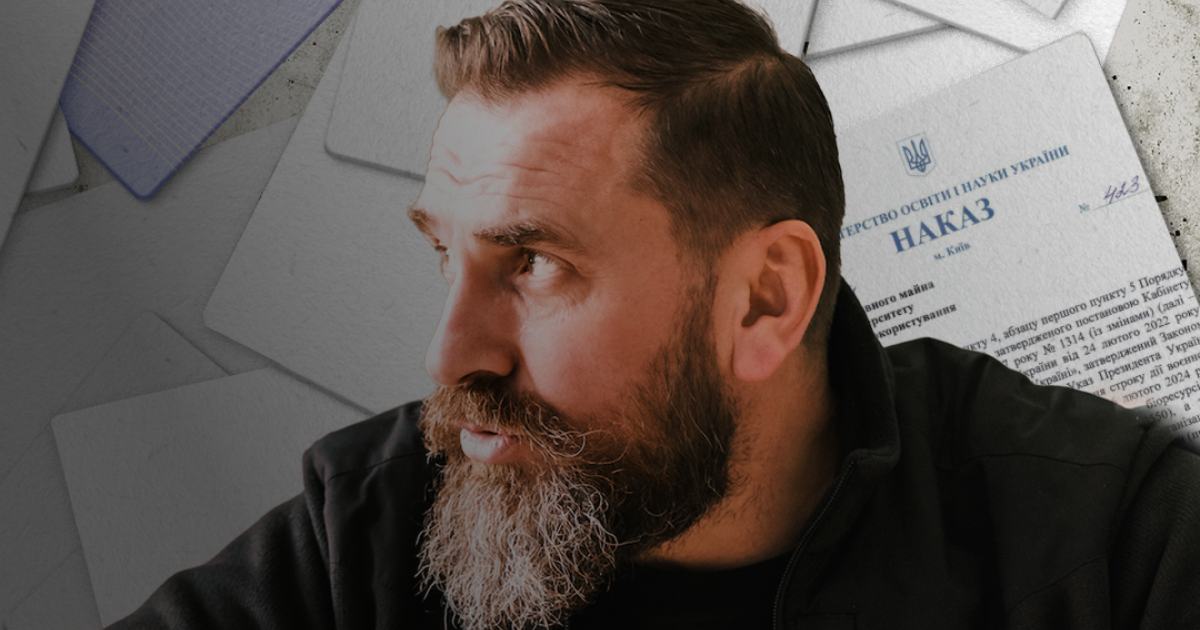
Oksen Lisovyi was appointed Minister of Education and Science in March 2023 with great expectations. He was supposed to improve the image of the ministry, adjust educational processes during the war, and continue to implement reforms.
However, during the year of the minister's work, society has not seen the implementation of institutional reforms in the field of education, the adjustment of processes is slow, and questions to the Ministry of Education and Science are accumulating in addition to those of Oksen Lisovyi's predecessor Serhii Shkarlet: the reform of university education, the change of the education system following EU standards, and the strategy for education planned by the ministry.
The article describes what the ministry has done during Oksen Lisovyi's tenure and what the Ministry of Education and Science focuses on.
Hopes and Expectations
At the beginning of 2023, the Ministry of Education faced a crisis. Its former head, Serhii Shkarlet, was one of the unpopular ministers. Problems with his appointment began when People's Deputy Inna Sovsun of the Holos (Voice) faction accused the parliamentary apparatus of 'button-pressing' (non-personal voting by People's Deputies of Ukraine) during the vote on Shkarlet's appointment in December 2020. Officially, 226 deputies voted for the appointment.
Following Shkarlet's appointment, Ukrainian students protested, accusing him of plagiarism in his monograph and corruption as rector of Chernihiv Polytechnic National University. The National Agency for Higher Education Quality Assurance confirmed the plagiarism in September 2020. Also, in 2021, the National Agency on Corruption Prevention found violations in Shkarlet's declaration and insufficient information about the source of his mother's income of four million hryvnias. Despite the protests and demands of students, Serhiy Shkarlet remained in office until March 17, 2023.
On March 21, 2023, the Verkhovna Rada elected Oksen Lisovyi, director of the Junior Academy of Sciences of Ukraine and a serviceman of the 95th Separate Air Assault Brigade, as the new Minister of Education and Science.
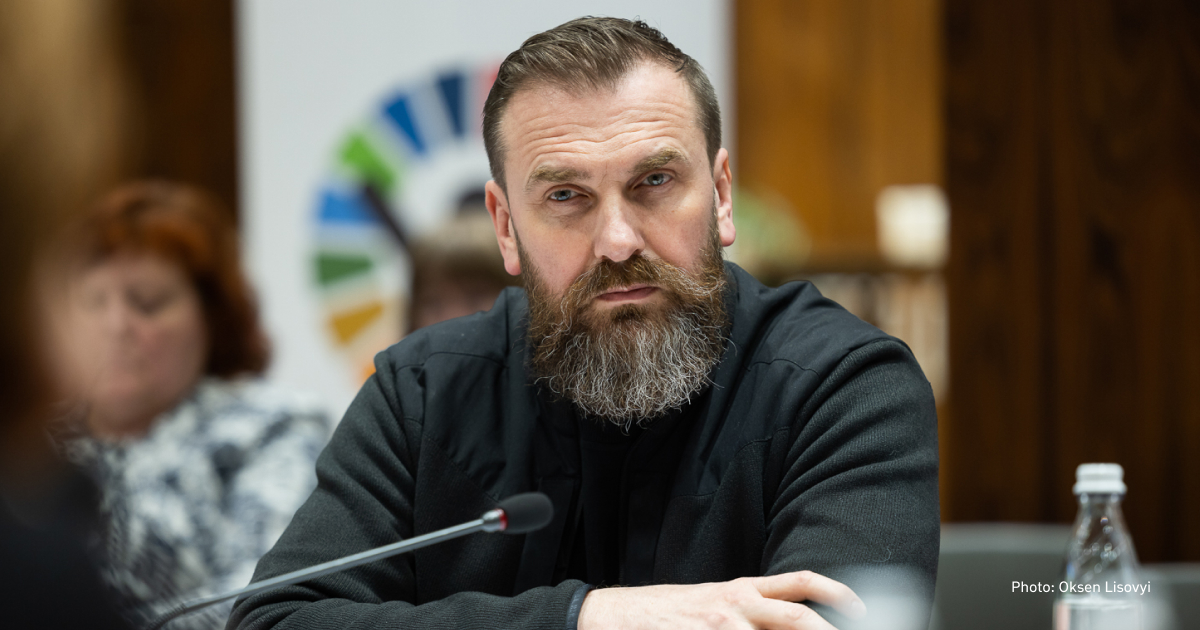
The Ministry of Education, like other government and state institutions, has faced challenges during Russia's full-scale invasion of Ukraine. Bombing of schools, internal and external migration of children and educational staff, disruption of the educational process — at the school, vocational and university levels.
The Ministry of Education under Lisovyi had to prioritise setting up the new school year in offline format, ensuring the safety of students and teachers, and improving the funding of teachers' and lecturers' salaries to facilitate their performance in the new wartime realities.
As of October 2023, the new school year began under the existing conditions. The Ministry allowed full-time education in institutions that had prepared shelters and in regions where the security situation was not critical —- where military administrations and educational institutions independently decided to authorise full-time education.
In the summer of 2023, Deputy Minister Andrii Vitrenko explained the ministry's decision based on the belief that regional authorities would do everything possible to ensure students could attend school full-time. In Kharkiv, local authorities even arranged for classes to be held in subway stations.
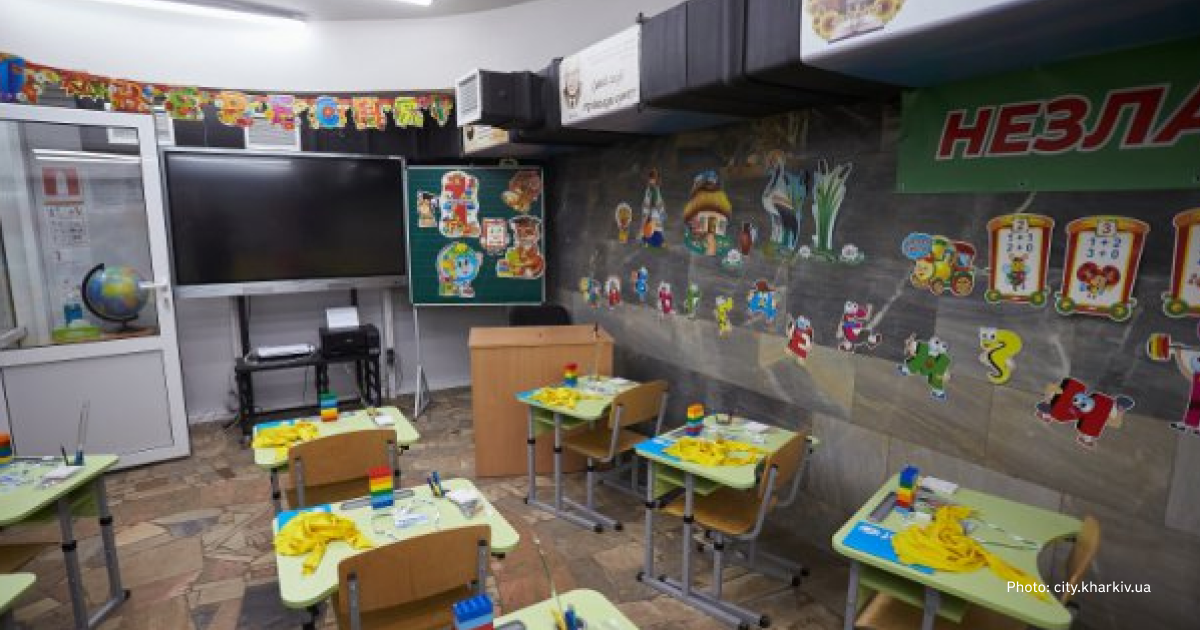
“The main task was to bring education back online wherever possible. And this does not just mean issuing instructions to allow offline classes. It means attracting funding and control for the creation of new and the upgrading of old bomb shelters, adapting licensing and accreditation requirements for educational institutions to the realities in which they are forced to exist,” says Mykyta Andreiev, executive director of the Ukrainian Association of Adult Education.
Projects and results
In its strategic plan to be fulfilled by 2027, Education of Winners, the Ministry of Education and Science sets the transformation of higher education as a priority goal. The Ministry plans to introduce university autonomy, where institutions will determine their budgets, areas of education, personnel issues, etc. The Ministry of Education also wants to introduce a European three-cycle system (bachelor's, master's and doctoral studies). It means that the Candidate of Science degree (the first advanced degree in the USSR, awarded to individuals with higher education who pass the minimum candidate examinations and publicly defend a dissertation for the candidate's degree) will be abolished. This step will contribute to the integration of the Ukrainian higher education system with that of the European Union.
The Ministry is already taking specific steps to transform higher education. In November 2023, the Verkhovna Rada approved a draft law on amendments to the 2024 admission campaign, which replaces part-time higher education with distance learning. This decision was developed by the Ministry of Education and the Ministry of Digital Transformation as part of the digital transformation project.
The Ministry plans to change the financing of higher education. Deputy Minister Mykhailo Vynnytskyi explained the changes in this process to Svidomi.
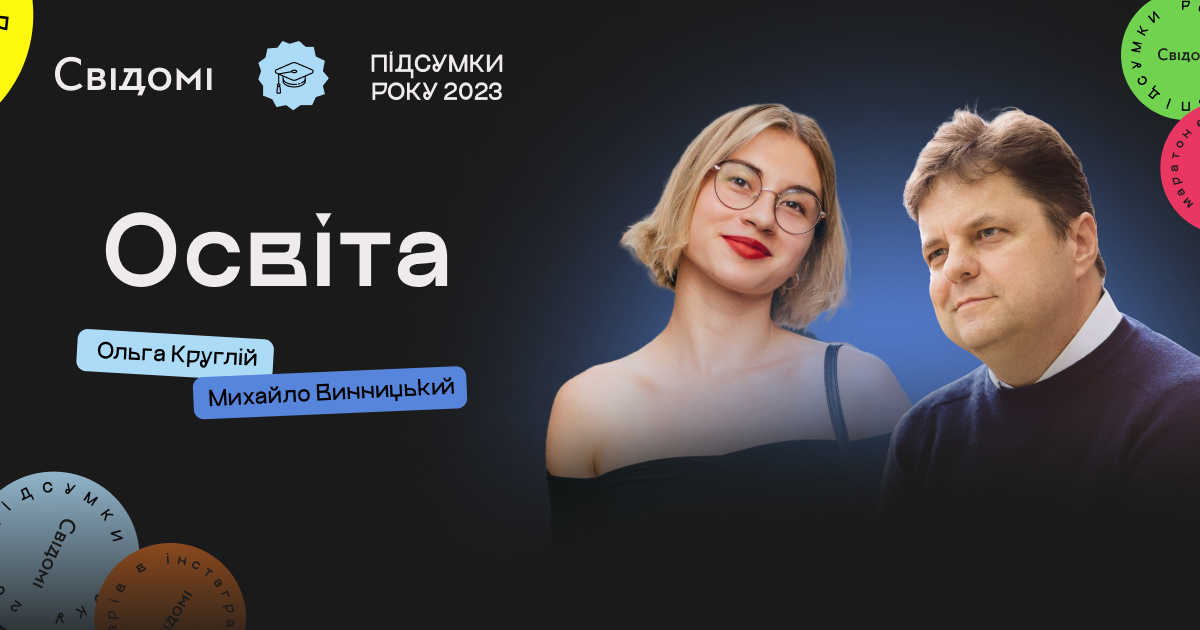
The Ministry plans to introduce a system of grants to cover tuition fees as early as September 2024. It means that some students will be able to receive part of the funds for expenses from the state.
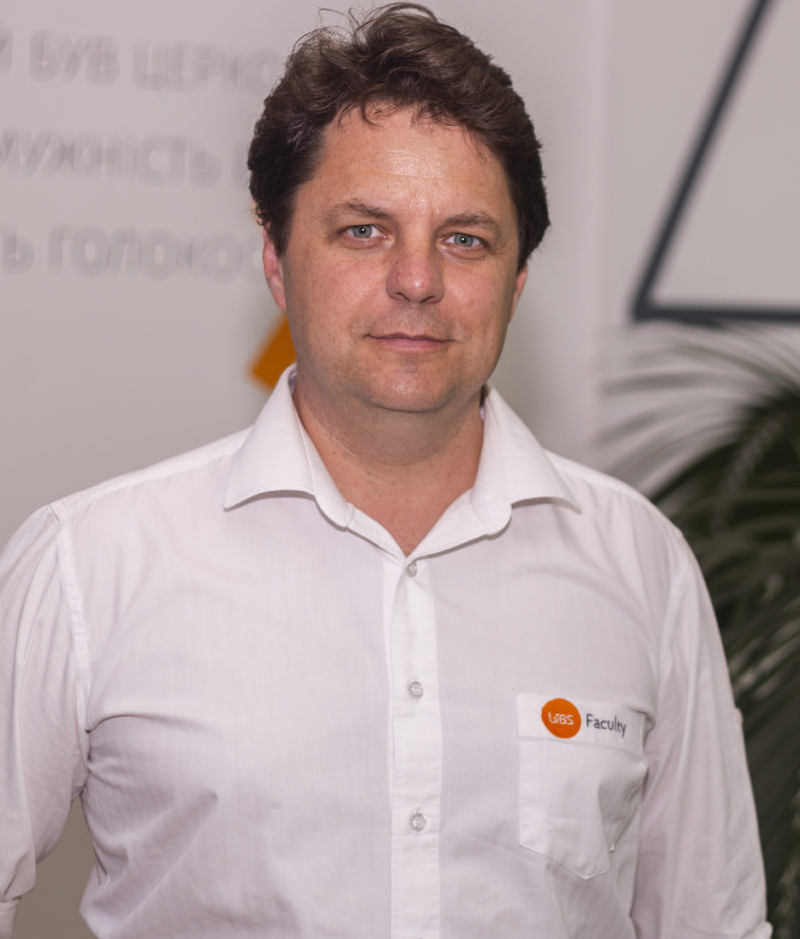
According to the system, 30% of bachelors are currently covered by the state, while 70% are under contract. We have to distribute the state support to everyone. There may be a situation where fewer people will receive state support, and more will receive a certain grant for their education, covering part of the contract. The part will be paid by the student, part by the state,
Mykhailo Vynnytskyi says.
Along with the reform of education financing, the ministry will also change the approach to state-commissioned education. The state will commission universities to train specialists in critical areas such as medicine, education, nuclear energy, etc. “A new system of state subsidies will be introduced for professions that contribute to the development of human assets,” the strategy says.
Mykhailo Vynnytskyi explains that the state “will order only those specialists it needs,” and the ministry can predict “how many people we will have and how many medical professionals we will need to serve this population”. Still, it cannot predict the number of journalists required, so this profession will not be ordered.
Mykyta Andreiev explains that with such projects, the Ministry of Education is now focusing its attention and resources on the wrong things for education. “The main goal is not to 'kill' part-time higher education, nor is it to reduce the amount of state funding for the education system under the slogan of changing the funding formula (system/principles),” he says.

Andreiev believes that the process of higher education, especially secondary or professional education, should be reformed but in such a way that it is accessible primarily to military personnel returning from the front and internally displaced persons who need to be recertified to change professions.
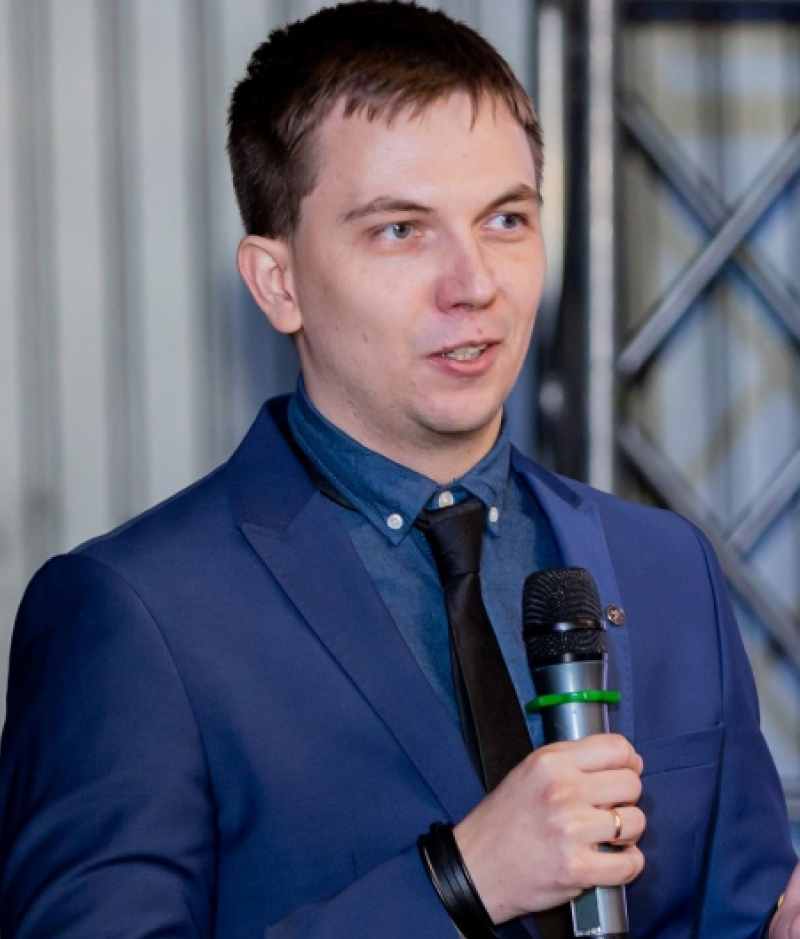
The first task was to create a system of adult education that would include modernisation of the retraining and vocational training system; also to create conditions for the development of a network of adult education centres (both non-governmental — business projects and NGOs — and municipal/state) for civic education of the population,
explains Mykyta Andreev, Executive Director of the Ukrainian Association of Adult Education.
The draft law on changes in education financing is currently being prepared for a second reading in the Verkhovna Rada. The ministry wants these changes to come into effect in September 2024, with the start of the new school year.
Transparency of reforms and countermeasures
The Ministry plans to reform universities through “consolidation”. Institutions will be merged to “develop modern spaces (campuses), create centres of innovation and excellence in cooperation with regional clusters and the university core”.
Polissia National University and the Ukrainian Academy of Printing have already announced their demand to reorganise educational institutions. The ministry plans to merge Polissia University with Zhytomyr Ivan Franko State University because “there are not many cross-training programs between them.” Polissia University focuses on training and graduating specialists in economics and agriculture.
In an interview with the Suspilne, Mykhailo Vynnytskyi explained that for a population of 350,000 in Zhytomyr “there should be two universities” (now there are three – ed.), that Polissia University “is the weakest higher education institution in terms of educational activity,” and that due to Zhytomyr's proximity to Kyiv, “we can consider the formation of a single institution in Zhytomyr.”
The University of Polissia issued a statement in the form of a petition to the government, stating that the merger process does not consider the university's needs and position, harms its subjectivity and is not transparent. The university also questions the whole idea of reforming higher education institutions, as the “expediency of merging autonomous and self-sufficient universities” is not widely discussed with all stakeholders of such a decision.
On March 20, the head of the Zhytomyr regional military administration said the university merger would not occur during the national multi-subject test and admission campaign.
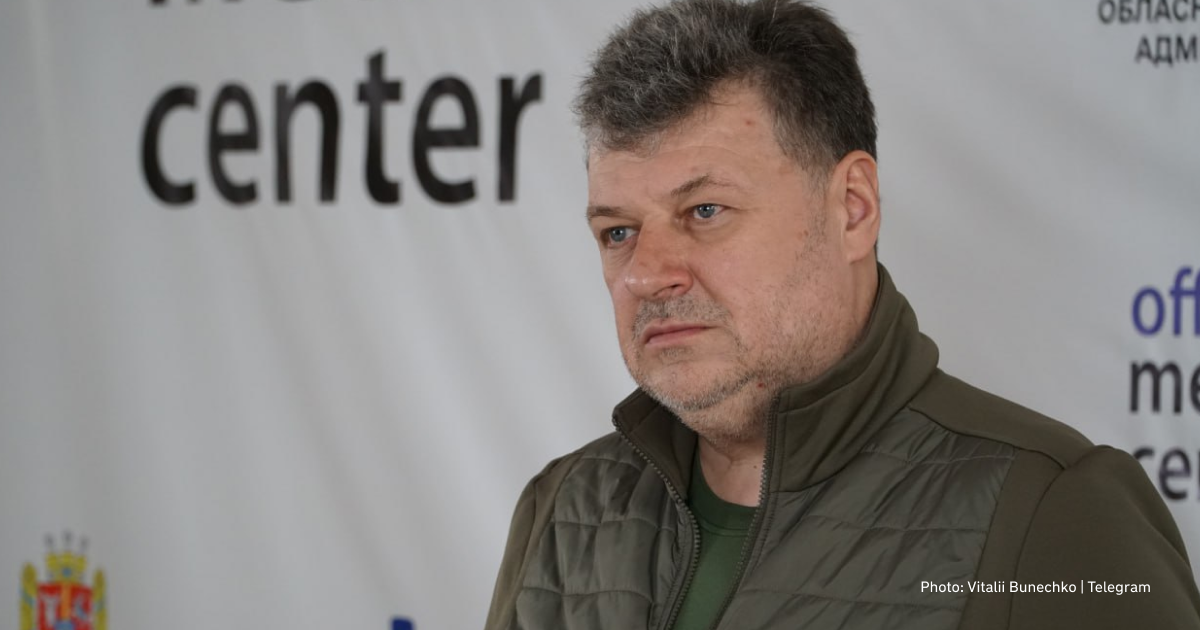
The Ministry of Education has planned to merge the Ukrainian Academy of Printing with another university in Lviv since 2022. At that time, they wanted to merge the Academy with the Ivan Franko National University of Lviv, but the students and the management defended the institution. Now, they want to merge it with the Lviv Polytechnic National University. The academy says they want to reorganise within a short time frame and complete it by the end of March.
Artem Holikov, chairman of the student council of the Printing Academy, tells Svidomi that the ministry is not communicating with the academy's leaders or students about the reorganisation of the merger process and 'keeps its mouth shut.'
“On March 6, in response to another appeal from the student government of the Ukrainian Academy of Printing (UAP), we received a letter from the Deputy Minister of Education and Science of Ukraine, Mykhailo Vynnytskyi, stating that the Ministry had no governmental decision on the reorganisation of the UAP. Instead, on the morning of March 7, we learned from social networks that the Ministry had already registered an order to reorganise the UAP signed by the Minister of Education and Science of Ukraine, Oksen Lisovyi,” Holikov explains.
The academy claims that the reorganisation of its institution threatens the entire printing and publishing industry in Ukraine, as it is the only educational institution in Ukraine that trains specialists in publishing and printing.
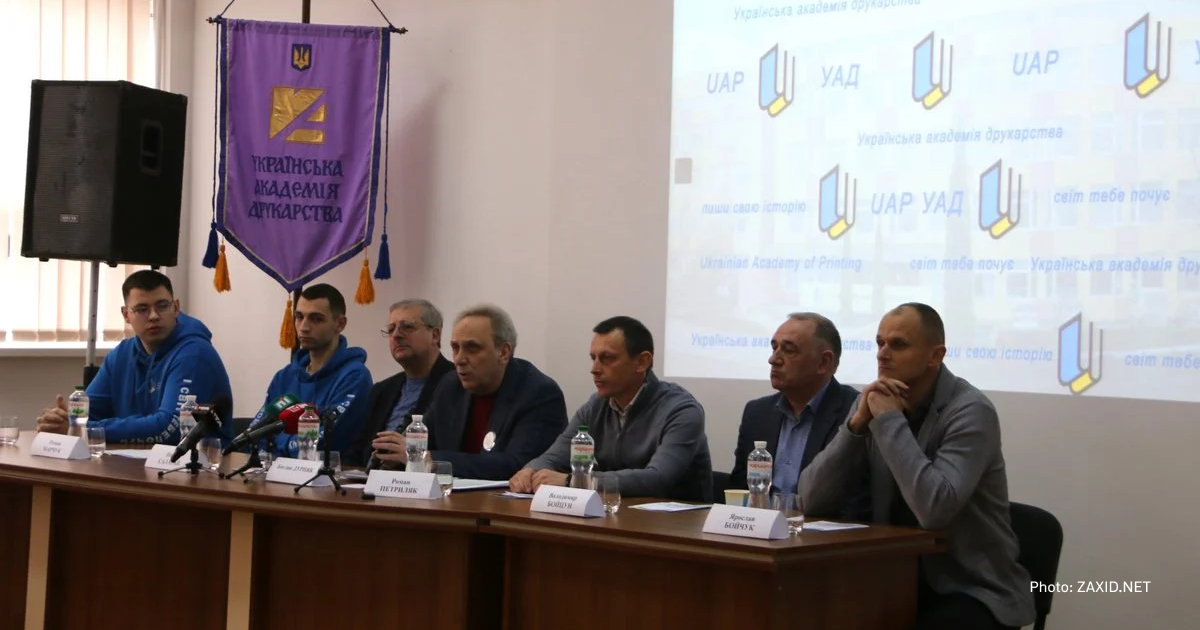
Artem Holikov also confirms this.
“The reorganisation threatens the book, packaging and printing industry. We need to train specialists who will analyse the profitability of books, technical specialists for equipment, design and printing specialists,” he says.
The Academy of Printing and Polissia University demand that the Ministry clearly explain how the reorganisation process will take place and communicate openly with the management of the educational institutions, students, and communities.
Taurida National University, which was relocated from Russian-occupied Crimea (Qırım) in 2014, was also subject to reorganisation. The Ministry of Education wanted to merge it with the Kyiv-Mohyla Academy. The university's student community rejected the merger in an official letter to the Ministry of Education. They emphasised that the university was engaged in educational and scientific activities related to the study of Crimea, its culture and indigenous peoples, so the reorganisation of the institution would destroy its achievements in these areas.
In February, the reorganisation was postponed, also at the request of the Ministry of Reintegration. The head of the Ministry of Reintegration, Iryna Vereshchuk, said that “the university would train personnel for Crimea”.
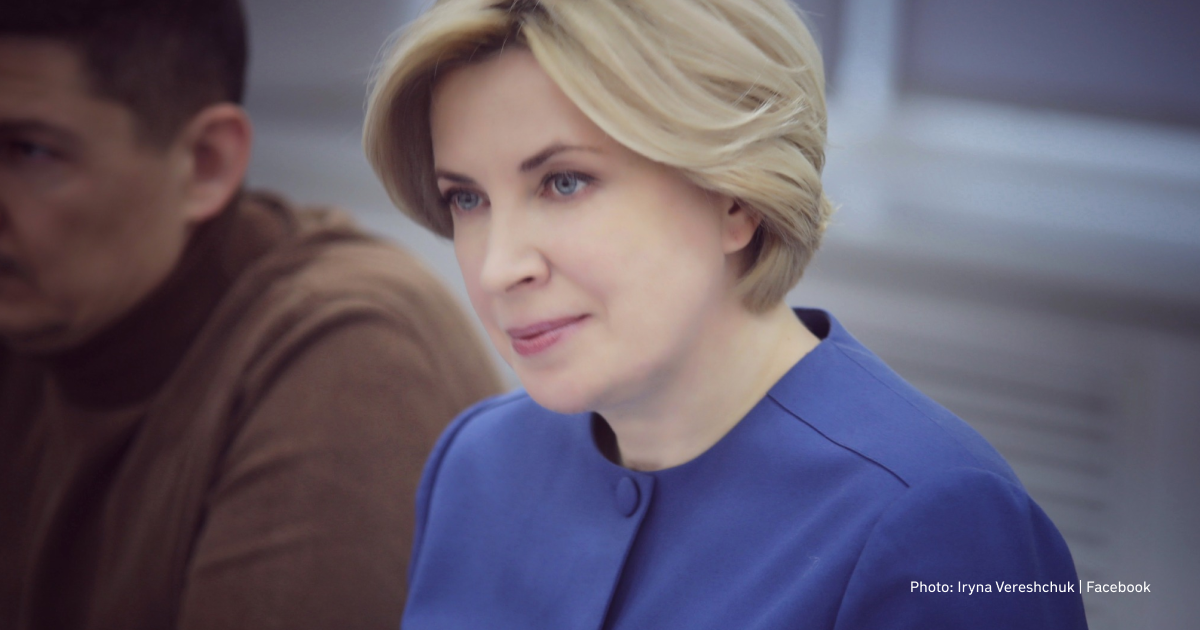
Requirements and conclusions
Two days before the appointment of Oksen Lisovyi as Minister of Education and Science, the team of the online resource “Errors and Falsifications in Scientific Research” published an article analysing the thesis of the candidate for the post of Minister “Socio-Cultural Self-Identification of the Individual”. Based on the analysis results, the team accused Oksen Lisovyi of plagiarism. Lisovyi submitted his work for review to the National Agency for Higher Education Quality Assurance and also wrote a refusal to receive his Candidate of Science degree. The agency suspended consideration of the complaint due to Oksen Lisovyi's voluntary rejection of the degree.
Oksen Lisovyi's predecessor, Serhii Shkarlet, also had a problem with plagiarism in his academic work. A request for an audit of Shkarlet's work was made only after he was dismissed from the post of Minister of Education. The National Agency for Higher Education Quality Assurance (NAQA) recognised that his work contained plagiarism. Now, Serhiy Shkarlet is appealing the decision.
The Law of Ukraine on Education defines academic liability for plagiarism in the form of re-evaluation of work, expulsion from a higher education institution, and loss of scholarship. However, these two cases of former Minister Shkarlet and Minister Lisovyi point to a systemic issue with plagiarism in the Ukrainian higher education system. The Ministry of Education provides recommendations to higher education institutions on how to detect and prevent plagiarism, but this is not enough. In EU countries, plagiarism in academic papers is regularly combated: specially designed plagiarism detection programs are used, often common to all universities; training is provided for teachers and examiners to detect plagiarism in student papers; and the consequences for plagiarism in papers are high, ranging from loss of academic degree and job to public disclosure of a case of plagiarism.
Education in Ukraine needs significant reform. Inadequate funding and provision of educational literature for schools and universities, as well as the loss of Ukrainian school-age children who study abroad, are all challenges facing Ukrainian education today. According to the Ministry, as of September 2023, more than 400,000 Ukrainian school-age children were abroad. Access to education and the safety of children and students can incentivise them to return to the Ukrainian education system. But this requires funding. According to the draft state budget 2024, about 5% of GDP (gross domestic product – ed.) will be allocated to education.
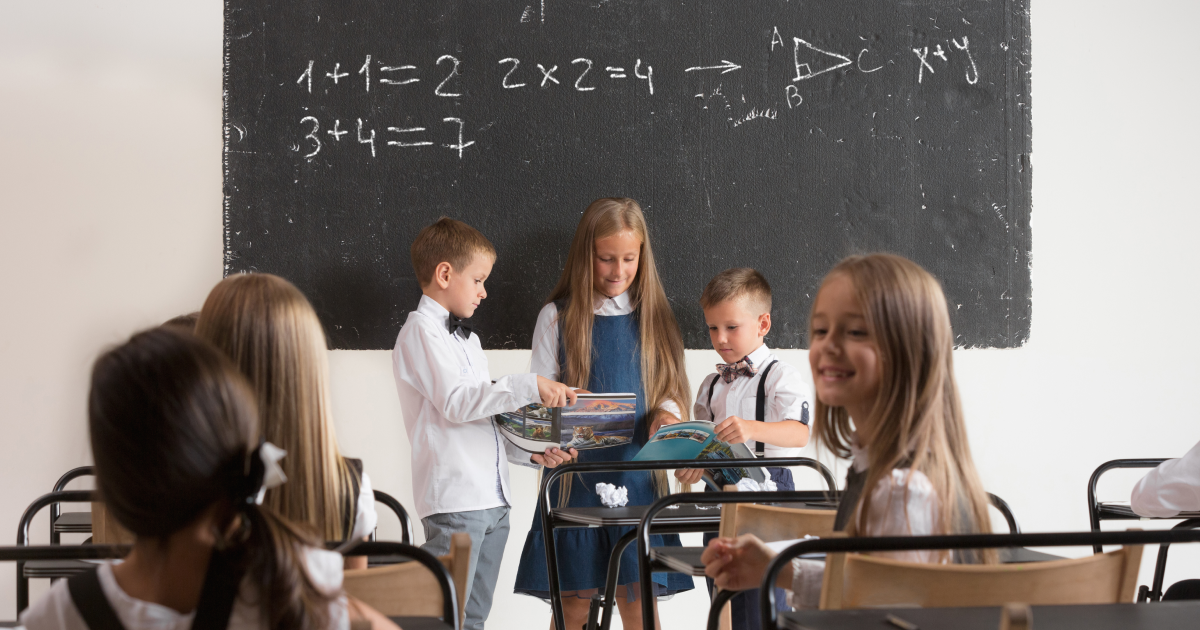
Mykyta Andreiev, executive director of the Ukrainian Association of Adult Education, says that the lack of funds forces the ministry to look for foreign grants and thus engage in short-term projects instead of improving the educational process as a whole.
“Very often, the Ministry of Education and Science leaders are guided by the requirements of our foreign partners who provide grants. Indeed, we would not survive without foreign funding, but we need to engage in dialogue, seek compromise, prove our point, and justify the country's needs. We don't want to end up like the idea of abolishing part-time education,” Mykyta Andreiev summarises the activities of the Ministry of Education after Oksen Lisovyi took office.


